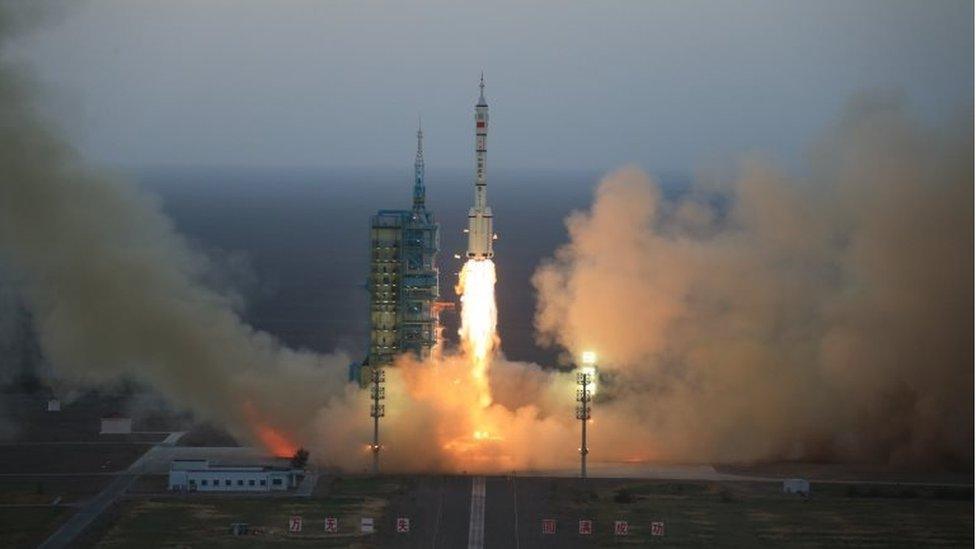China takes aim at the Moon with long-term cabin trial
- Published
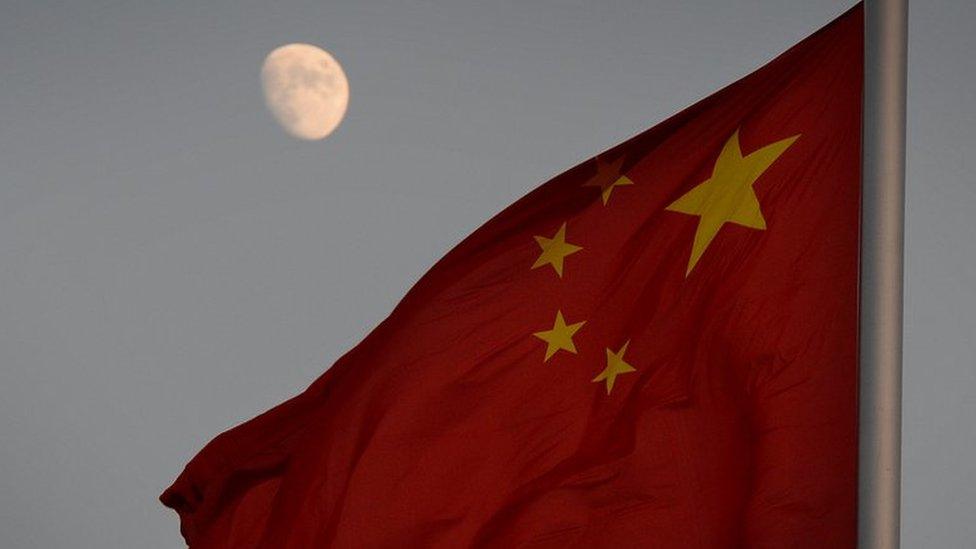
China is taking another step in its space exploration programme, starting a trial scenario for a permanent Moon station.
Science students have moved into a cabin to simulate life in a lunar-like environment for up to 200 days.
The goal is to prepare for a long-term space mission with no input from the outside world.
China has poured huge funding into its space programme to rival that of the US and Russia.
Four postgraduate students from the astronautics university of Beihang on Wednesday moved into the cabin, ambitiously called the Yuegong-1, or Lunar Palace in English.
They will stay in the cabin for 60 days, followed by another group who will stay for 200 days. The first four will then return for yet another 105 days.
Isolated, self-contained
According to state news agency Xinhua, one of the main elements of the experiment is to explore is how a space mission could be entirely self-contained over a long period of time.
Human waste will undergo a bio-fermentation process, and crops and vegetables are to be grown with the help of food and waste by-products.
The model Moon station has two plant cultivation modules and a living cabin housing four bed cubicles, one common room, a bathroom, a waste treatment room and a room for raising animals.
While the experiments aboard the Lunar Palace are aimed at preparing lunar explorers for long stays on the moon, China does not plan to land its first astronauts there for at least another 10 years.
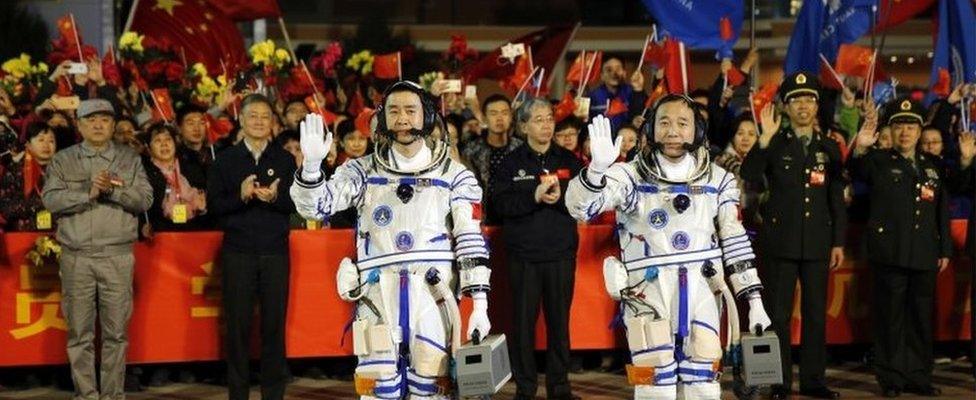
in 2016, astronauts Jin Haipeng (R) and Chen Dong spent 30 days in space
In October 2016, Beijing launched two men into orbit to dock with the experimental Tiangong 2 space lab and spend 30 days there, the longest stay in space by Chinese astronauts.
This and previous launches have been seen as pointers to possible crewed missions to the Moon or Mars.
China is only the third country - after Russia and the US - to carry out its own crewed missions. In 2013 it successfully landed its un-crewed Yutu, or Jade Rabbit, rover on the Moon.
It was excluded from the International Space Station due to concerns over the military nature of its space ambitions.
Life on Mars?
China is not the only country exploring the conditions for long-term space travel.
In the US, a team of six people completed a Mars simulation in Hawaii in 2016, where they lived in near-isolation for a year.
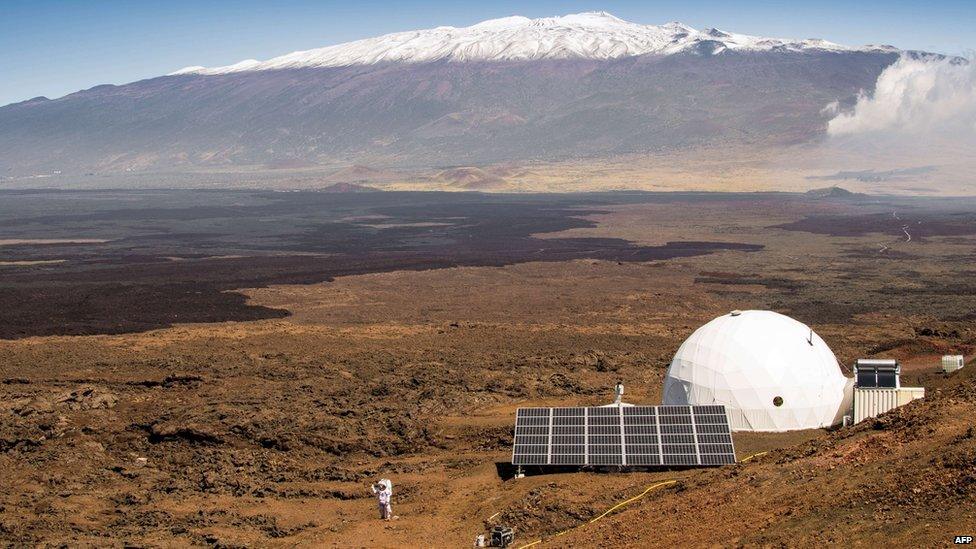
Nasa's isolation experiment addressed the human element of exploration
The group lived in close quarters in a dome without fresh air, fresh food or privacy.
The Nasa-funded study by the University of Hawaii was the longest of its kind since a similar Russian mission that lasted 520 days and had six men locked away in steel tubes for a year-and-a-half to simulate a mission to Mars.
The Mars500 project, undertaken at a Moscow institute, was intended to find out how the human mind and body would cope on a long-duration spaceflight.
- Published4 November 2011
- Published19 October 2016
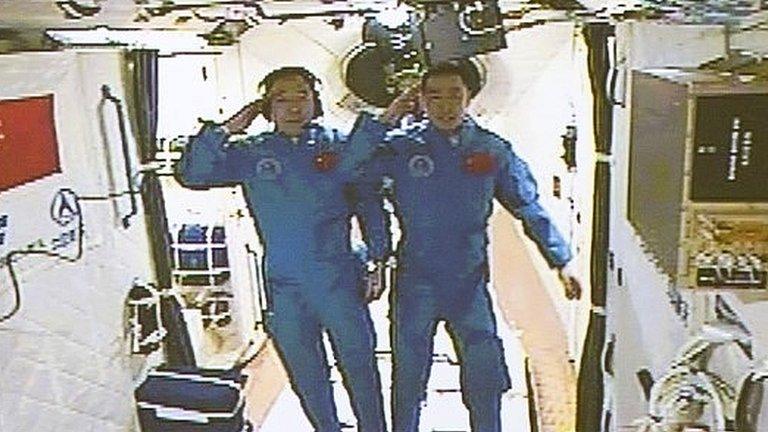
- Published29 August 2016
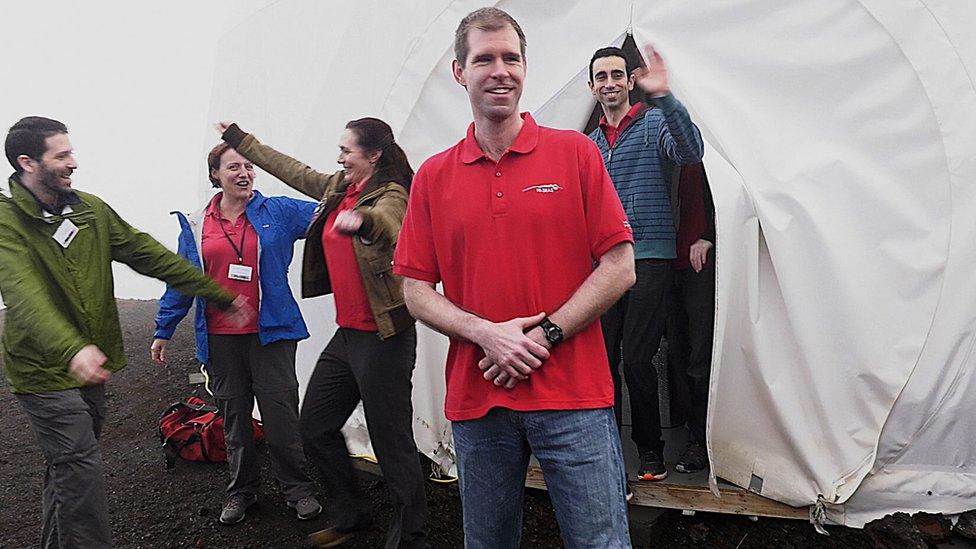
- Published17 October 2016
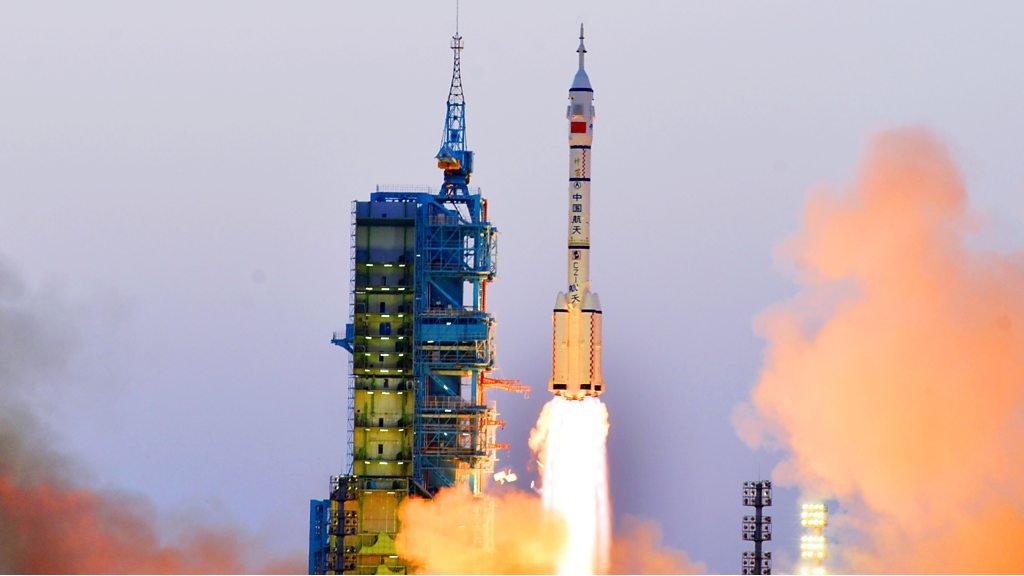
- Published17 October 2016
